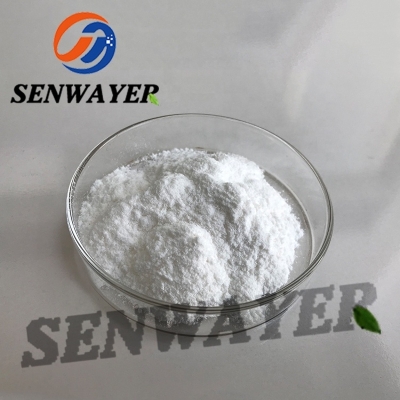-
Categories
-
Pharmaceutical Intermediates
-
Active Pharmaceutical Ingredients
-
Food Additives
- Industrial Coatings
- Agrochemicals
- Dyes and Pigments
- Surfactant
- Flavors and Fragrances
- Chemical Reagents
- Catalyst and Auxiliary
- Natural Products
- Inorganic Chemistry
-
Organic Chemistry
-
Biochemical Engineering
- Analytical Chemistry
- Cosmetic Ingredient
-
Pharmaceutical Intermediates
Promotion
ECHEMI Mall
Wholesale
Weekly Price
Exhibition
News
-
Trade Service
BioMarin recently announced that detailed results of a randomized double-blind placebo-controlled Phase 3 trial evaluating vosoritide (Vusoli peptide, BMN111) for the treatment of cartilage dysplasia in children aged 5-18 years have been published in The Lancet.
this study provides the first strong evidence for the precise treatment of cartilage dysplia: vosoritide has the potential to fundamentally change the clinical management, growth trajectory and treatment recommendations of affected children.
data show that after one year of treatment, patients treated with vosoritide after a placebo correction showed a statistically significant increase in annualized growth rate (AGV, an increase of 1.57 cm/year, p.0001) and a height Z score (an increase of 0.28 points, p.0001) compared to the baseline, with similar adverse reactions.
pre-designated subgroup analysis showed that vosoritide therapy continued to increase AGV and Z scores compared to placebos.
(see: Once-daily, subcutaneous vosoritide therapy in children with achondroplasia: aside, double-blind, phase 3, placebo-controlled, multicentre trial) vosoritide is a C-type sodium peptide (CNP) similar, injected daily subcutaneously to treat cartilage dysplasia in children, which is the most common proportion of human cartilage development.
, Vosoritide is currently under regulatory review in the European Union and the United States and has previously been granted ODD status.
if approved, vosoritide would be the first drug to treat cartilage dysplia.
the root cause of the drug's treatable disease represents a major medical breakthrough that has the potential to have a meaningful impact on patients' lives.
a global Phase 3 study of 121 children aged 5-14 with cartilage dysplia who were still open to growth boards assessed the efficacy and safety of vosoritide and placebo.
patients completed at least six months of baseline studies to determine their respective baseline growth rate before entering Phase III.
phase III study, patients were randomly assigned to vosoritide (15ug/kg/day, subsulvation injection) or placebo for a period of one year (52 weeks).
end point was a change in the annualized growth rate (AGV) relative to baseline in children treated with vosoritide at 52 weeks of treatment compared to placebo.
the study will continue to be evaluated in an ongoing open label extension study, in which all patients were treated with vosoritide until the patients in the study reached their final adult height.
, published in The Lancet, showed that the study reached its main endpoint: after one year of treatment, the average corrected AGV difference between the vosoritide group and the placebo group was 1.57 cm/year, which was beneficial to vosoritide (95% CI: 1.22-1.93, p.0001).
the subgroup analysis results of agV relative to baseline change were consistent with the overall average difference between the treatment groups, which was beneficial to vosoritide.
addition, a pre-specified analysis was performed on the secondary endpoint of the height Z score change during the baseline check.
results showed that the correction average difference of the height Z score change in the vosoritide group and the placebo group was .28, which was favorable to vosoritide (95% CI:0.17-0.39, p.lt;0.0001).
results of the subgroup analysis are consistent.
the 52-week study, there was no adverse effect or significant improvement in the upper and lower body ratio of children treated with vosoritide.
As expected, due to the duration of follow-up, no statistically significant changes were found at secondary endpoints associated with broader health outcomes, such as quality of life, daily life activities, frequency and type of medical and surgical interventions.
need longer treatment cycles or earlier treatments to detect these changes.
, the Open Label Extension Phase 3 study will continue to assess the balance of benefits and harms of vosoritide until the children in this study reach their final adult height.
safety, vosoritide is generally well-to-do, with most adverse events (AEs) being mild and no serious adverse events reported as drug-related.
reactions at the injection site are the most common drug-related adverse events and are short-lived.
no clinically significant drop in blood pressure, and no new safety findings were observed.
.







